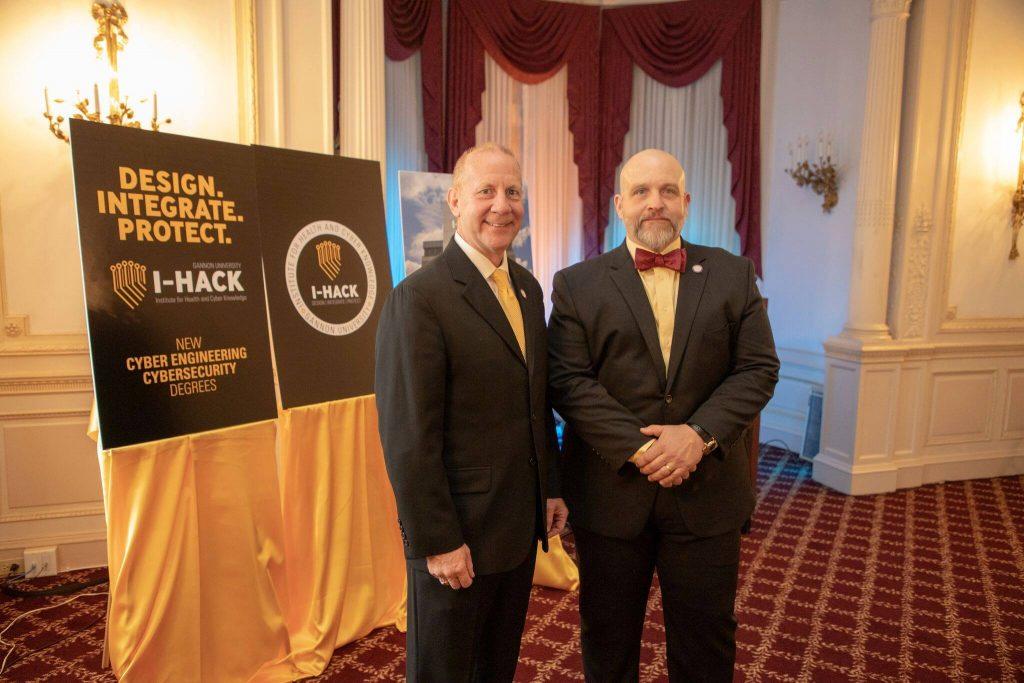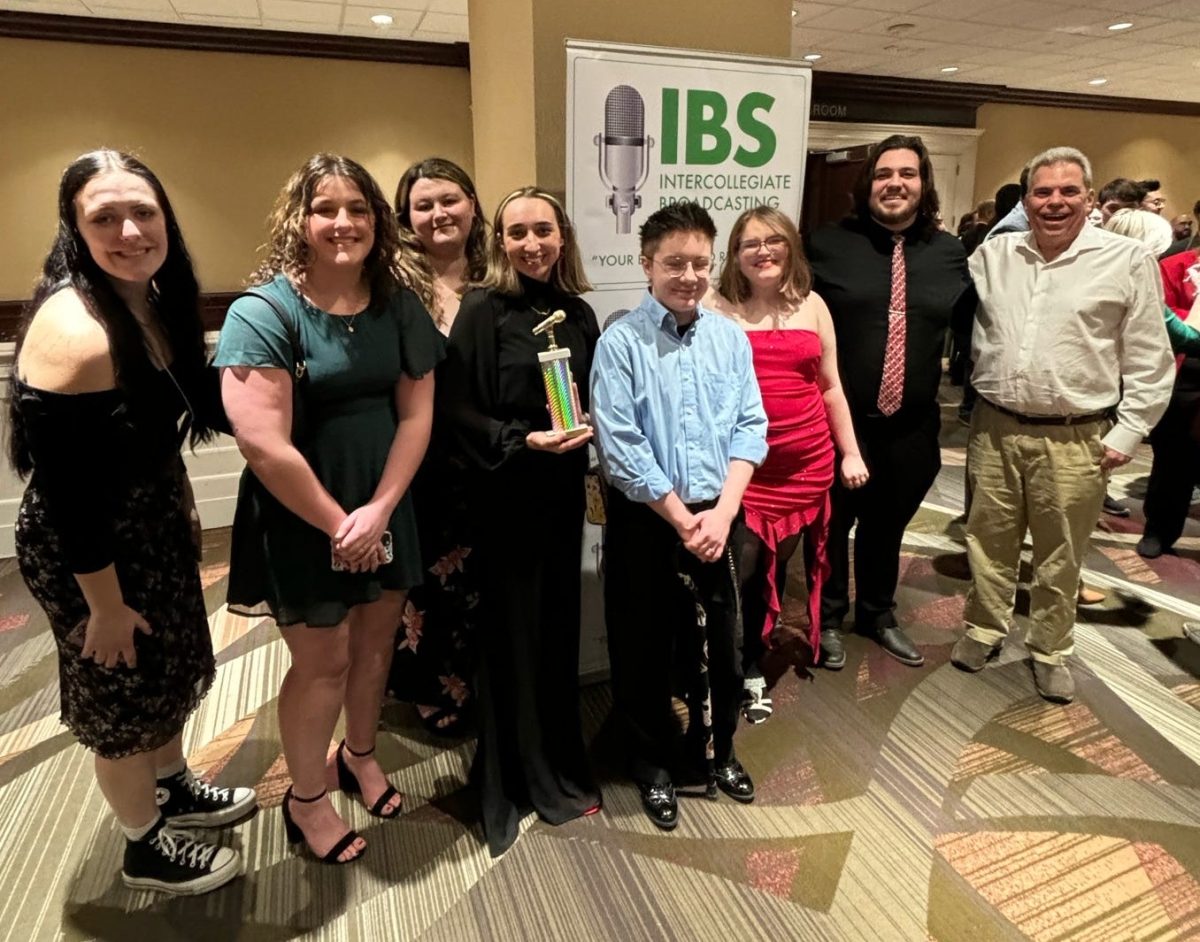Gannon University’s College of Engineering and Business will be launching two new programs, cyber engineering and cybersecurity, next fall.
The 100,000-square-foot Knight Tower will also be transformed into an Institute for Health and Cyber Knowledge (I-HACK) Center.
Beginning in the fall of 2019, students in the cyber program will have the ability to earn a bachelor’s degree in either field, and a minor in cybersecurity will be available for students majoring in criminal justice.
Cybersecurity is software oriented whereas cyber engineering will be hardware oriented.
According to a report by Cybersecurity Ventures, it is estimated that by 2021 cybercrime damage will exceed $6 trillion in expenses annually.
The report also predicts that roughly 3.5 million vacant positions globally are to be expected by the same year.
Students enrolled in the cyber programs will be able to gain knowledge and expertise in various areas such as IT security, ethical hacking, data security, mobile security and implementation, information assurance, cyber information security, server and cloud security as well as many others.
Students who graduate with a degree in cybersecurity or cyber engineering will be able to apply their knowledge and skills in fields such as health care, security services, hardware and software design, security communication and secure data storage.
While regional cyber security programs do exist, Gannon will be the first to meet the Accreditation Board for Engineering and Technology, Inc. (ABET) accreditation standards and offer cyber engineering as well.
ABET is a nonprofit organization that accredits post-secondary education programs in applied and natural science, computing, engineering and engineering technology.
Fong Mak, Ph.D., professor of electrical and computer engineering, will be the interim program director for the new cyber programs.
According to Mak, there are two ABET accreditation criteria that these programs will be designed to meet: Computing Accreditation Commission (CAC) and Engineering Accreditation Commission (EAC).
The CAC criteria focus on the security of humans, programs, software, systems, connection and more.
The EAC criteria mandate application of protective technologies, security principles and analyzing and evaluating components of operation.
Mak said that he will be the interim program director because the program needs someone who is familiar with the ABET’s accreditation requirements as well as knowledge of the hardware and software components.
As chairperson of the electrical and computer engineering department for 14 years, Mak has designed, implemented and executed the ABET’s accreditation process for the department.
He has also been a consultant for other institutions to guide them through their ABET’s accreditation process, which is why the two new programs will meet these guidelines from the very beginning.
Mak also has background knowledge in cyber engineering and cybersecurity.
Yunkai Liu, Ph.D., a professor in the bioinformatics department, worked with Mak to initiate the proposal and design the curriculum for the two new cyber programs.
“The marketplace is desperate for talent with these technical, design and creative skills, and Gannon will be preparing students to meet that demand,” Mak said.
The I-HACK Center will be housed in Gannon’s Knight Tower on West Ninth Street.
The new facility will consist of a cyber defense lab, security-controlled hacking lab, engineering labs, a secure data center and two floors with flexible space for housing external industry partners.
Although the program will be available for students beginning in the fall of 2019, Mak estimates it will be two to three years before the Knight Tower is turned into the I-HACK Center for students to use.
Walter Iwanenko, Ph.D., vice president of Academic Affairs, estimates that renovations of Knight Tower into the I-HACK Center will probably take between two and four years.
“During our last board of trustees meeting, we gave authorization to seek (requests for proposals) for architectural design work, and then we begin the bidding process for those designs,” Iwanenko said.
“If all goes well, we’re hoping to start construction in the tower in the summer of 2019 and have the labs functional for student use by the beginning of the semester in fall 2020.”
Iwanenko said that the labs are a main priority, but there are other things that will be in the center that will need to be completed, such as the data center and housing for external industry partners. Having a space for the program is the prime concern.
The costs to cover the building renovations will be phased out over the years, and Iwanenko said that students should not expect to see an increase in tuition costs to cover expenses.
“We have the ability to fund the project,” Iwanenko said, “but the money needs to be spread out over several years so that it doesn’t fall onto the students.”
Iwanenko said they are currently working to establish corporation partners in the industry, and if they make donations or help fund the renovations, it could speed things up and shorten the timeline that is currently in place.
Iwanenko also believes that the student interest is present for these new cyber programs.
“We engaged with an outside marketing team to do an extensive study on the potential student interest and to look at other programs in the cyber field, as well as examining what other colleges and universities offer through similar programs,” Iwanenko said.
“We are just one of a handful of schools that would offer cyber programs.”
Iwanenko said that student interest is clearly there. He also said that during the study of other cyber programs, they also noticed an increase in high schools, with students in the pre-engineering track or other cyber-related courses.
“We expect high school students will be interested in coming to Gannon for these programs,” Iwanenko said, “or students from other schools to transfer into this program after they get a feel for college and the other programs that are offered.”
VERONICA KOWALSKI











